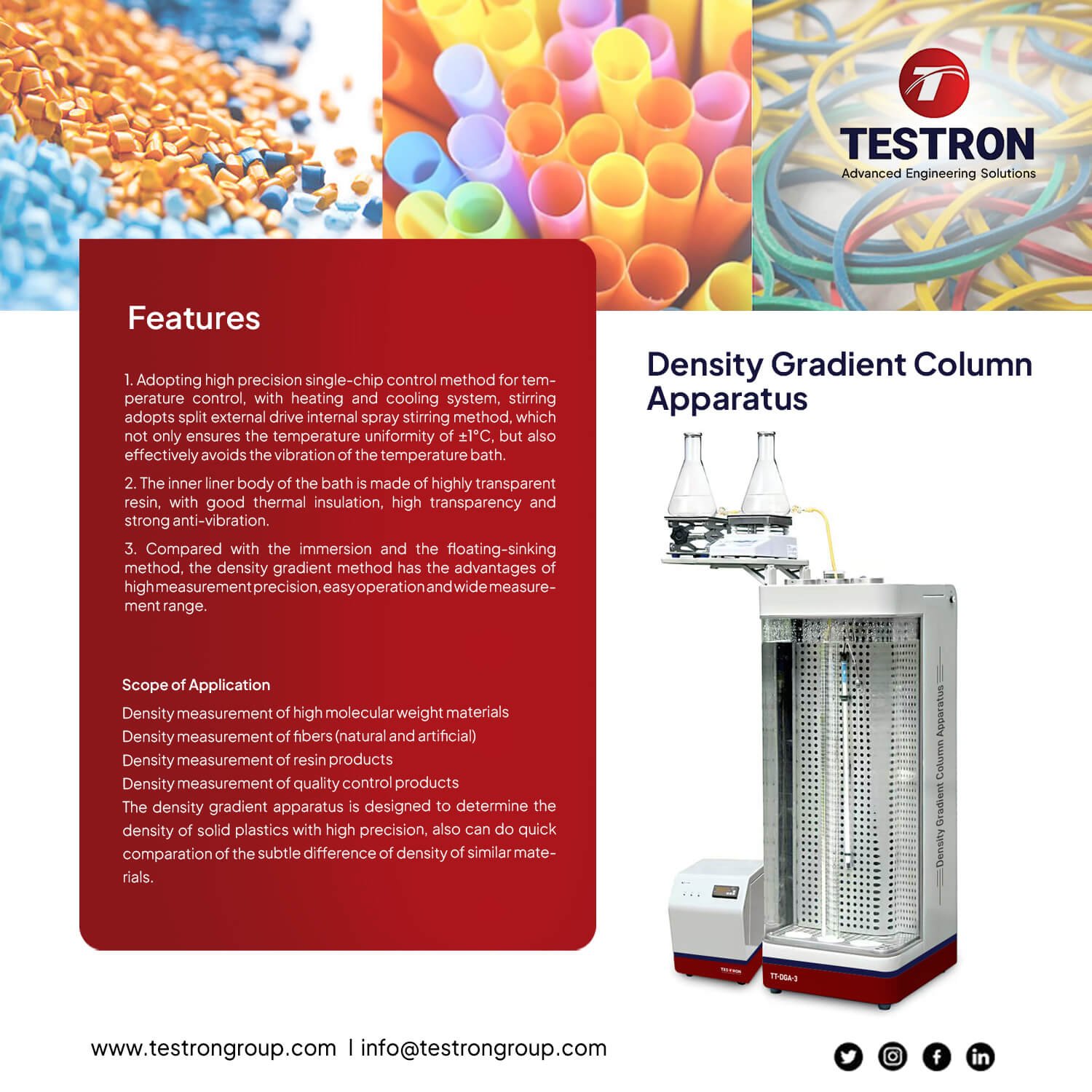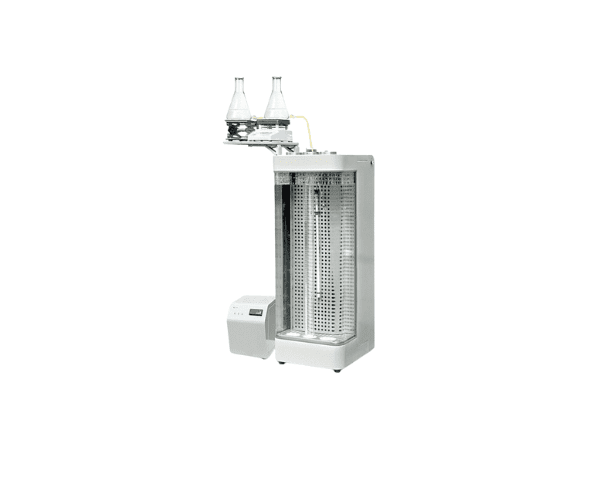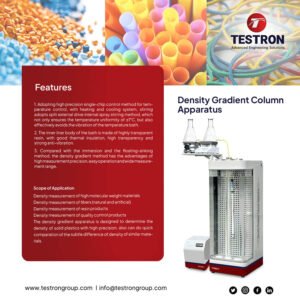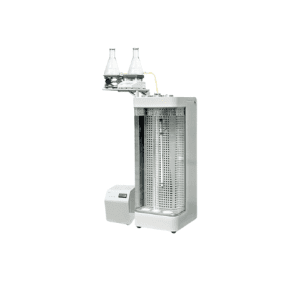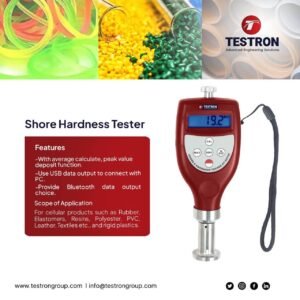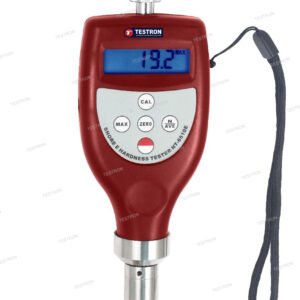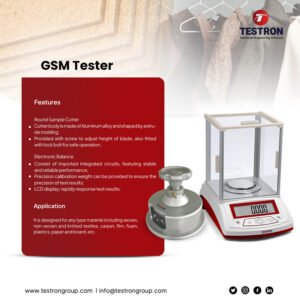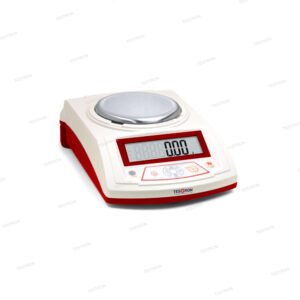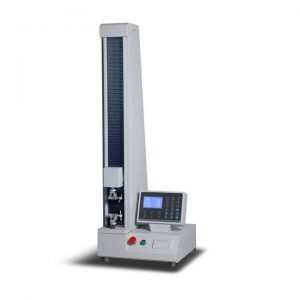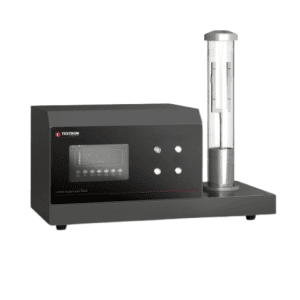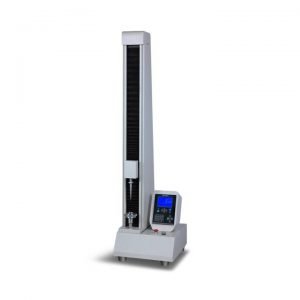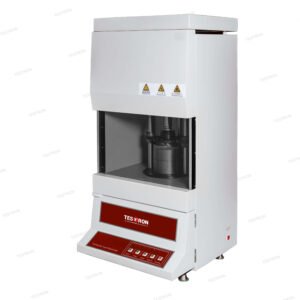Test Standards
ASTM D 1505, ISO 1183-1:2004, ISO 11542-2
Application:
- Density measurement of high molecular weight materials
- Density measurement of fibers (natural and artificial)
- Density measurement of resin products
- Density measurement of quality control products
The density gradient apparatus is designed to determine the density of solid plastics with high precision, also can do quick comparation of the subtle difference of density of similar materials.
Principle
A glass test tube is filled with two easily mixed solutions. The resulting mixture has a lower density at the top of the tube and a higher density at the bottom of the tube and varies in a linear ratio. A precisely calibrated glass float marker of known density is placed into this gradient column, and this glass float is suspended at the exact point that matches the density of the solution.
Features
- Adopting high precision single-chip control method for temperature control, with heating and cooling system, stirring adopts split external drive internal spray stirring method, which not only ensures the temperature uniformity of ±1℃, but also effectively avoids the vibration of the temperature bath.
- The inner liner body of the bath is made of highly transparent resin, with good thermal insulation, high transparency and strong anti-vibration.
- Compared with the immersion and the floating-sinking method, the density gradient method has the advantages of high measurement precision, easy operation and wide measurement range.
Technical Parameters
- Measurement range: 0.80g to 2.70g/cm3
- Accuracy: 0.0001 g/cm3
- Density gradient tube: ID 50mm, length 900mm
- Graduation range: 0-850mm, resolution: 1mm
- Number of test stations: 3 (or more)
- Temperature range: 20℃ to 30℃
- Temperature accuracy: ±05℃
- Standard glass floats: 0.80g to 2.70g/cm3, accuracy 0.0001 g/cm3

